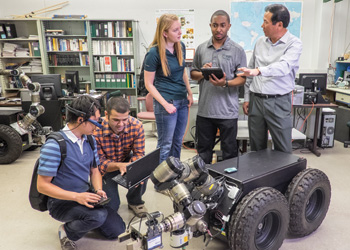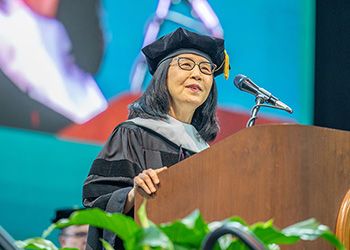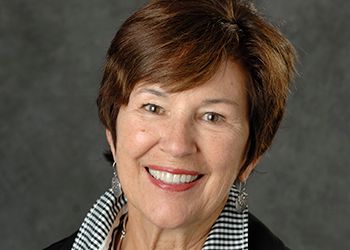MSU Joins Alliance to Increase STEM Graduation Rates
We have the will, the tools and the critical mass to finally begin to breach a persistent barrier to delivering the promise of opportunity to all our students, no matter what their family or geographic circumstances.
March 11, 2015
“There is no question now that educational attainment is key to social mobility in an increasingly knowledge-based economy,” said MSU President Lou Anna K. Simon. To meet this challenge, Michigan State and 10 other research universities have allied to increase the graduation rate for students from low-income and underrepresented backgrounds. The University Innovation Alliance effort is receiving $5.7 million in support from six major funders.
Simon added, “We have the will, the tools and the critical mass to finally begin to breach a persistent barrier to delivering the promise of opportunity to all our students, no matter what their family or geographic circumstances.”
The alliance will develop and test new initiatives, share data and create a playbook of best practices, aspiring to invigorate efforts in all colleges and universities to produce a better-educated workforce.
MSU will be sharing and scaling its Neighborhood initiative, launched in 2010 to enhance student engagement and success.
“Housing more than 14,500 students, Michigan State’s Neighborhoods harness the power of one the nation’s largest residence hall systems to bring the resources of MSU to first-year students where they live,” said MSU Provost June Youatt. “This new model of integrated academic, residential and student services addresses the goal of giving every student admitted to MSU an equal opportunity of graduating.”
Initial data show that MSU’s Neighborhoods are making a difference. Low-income, first-generation and first-year students who received focused outreach through the Neighborhoods were 20 percent less likely to be on academic probation after their first semester; those who used Neighborhood services more frequently had better GPAs.
Other universities in the alliance are Arizona State; Georgia State; Iowa State; Oregon State; Purdue; Ohio State; California, Riverside; Central Florida; Kansas; and Texas-Austin.
Support is provided by the Ford Foundation, the Bill & Melinda Gates Foundation, the Kresge Foundation, Lumina Foundation, Markle Foundation and USA Funds.




